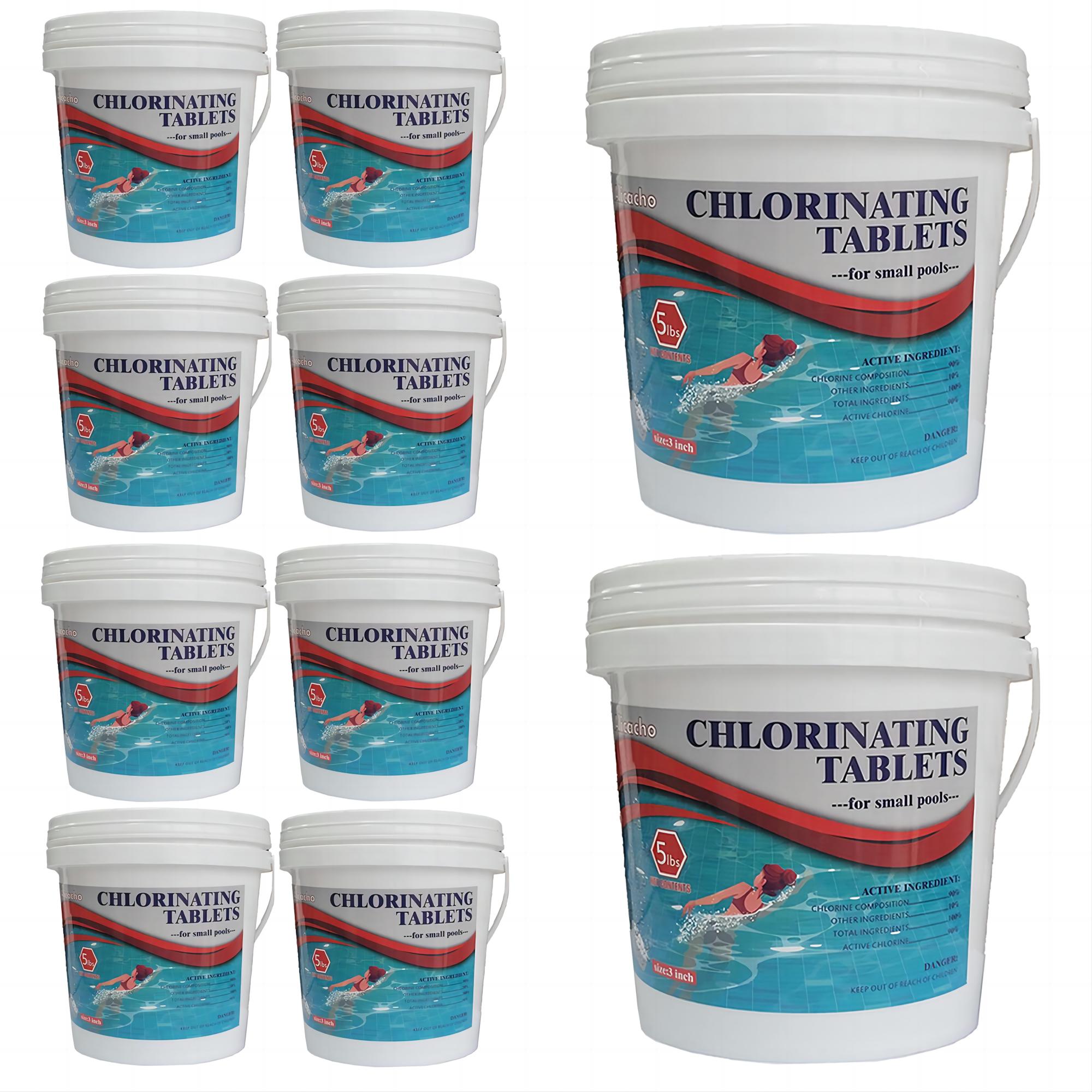Do you have any idea how chlorine works for your pool? Or which is the better option between chlorine granules vs tablets? It can be confusing and overwhelming to choose at first, but you have to make sure that you have conducted thorough research before choosing which to use since results may vary based on the type and size of the pool you have.
As we all know, pools are different in many ways, and when it comes to the right type and amount of chlorine to use, all of these must be considered to be able to make sure that money spent on chlorine won’t be turned to waste. In this article, we are going to have a deep dive into the comparison between chlorine granules vs tablets. So, if you are also having confusion between the two, you have to finish this article by the very end.
Part 1. The Better Choice To Make
If you are just a beginner in handling pools, it is only natural to get puzzled by the many forms of chlorine. Here, we are just going to focus on the two types that are commonly used by many pool owners these days, chlorine granules vs tablets.
So, what are chlorine granules? This type of chlorine will immediately be dissolved once you pour it into your hot tub. This will automatically boost the chlorine concentration in your pool. The quick dissolving of this type of chlorine is because of its lower concentration(about 60% Available Chlorine) and small size. It is also a faster solution to get rid of all the viruses, algae, or bacteria that are present in your pools.
On the other hand, chlorine tablets can be added using a floating dispenser and may be dissolved at a slow time rate. Instead of giving your water an immediate chlorine boost, the use of tablets may help you gradually feed chlorine to your pool water, which may help you keep your free chlorine steady until all the tablets are consumed, and it needs to be refilled once more. It has a higher concentration(roughly 90% Available Chlorine) of chlorine which eventually breaks down. The time frame that your chlorine will be dissolved will be based on the size of your pool water.
Part 2. Advantages And Disadvantages of Chlorine Granules And Tablets
Aside from getting to know chlorine granules vs tablets, it is also a must to figure out the advantages of using each one. This will also help you decide which should you use between the two considering factors and circumstances that will highly contribute to the result that you want to achieve. But as we always said, both are forms of chlorine and since chlorine is present in both, both can be effective warriors against several microorganisms that can destroy your pool water.
Chlorine Tablets
If you are looking to have a longer effect, then tablets can be recommended for you. Once you have made a study, and carefully added tablets based on the instructions, chlorine tablets can last for a few days. If you do not have lots of bathers or if there are no heavy typhoons within your area, using chlorine tablets can save you in case you missed something that you have to check.
On the other hand, when it comes to spas, the use of chlorine tablets may cause your headrests to be discolored, most especially if the spa cover hasn’t been removed for multiple days.
Chlorine Granules
If you want something easier to apply to your pools to have a chlorine boost, you can opt to use the granular form. It is The key selling point of granules compared to tablets, their speed in delivering a chlorine boost to the pool. As we have said before, they can dissolve faster, and can immediately take action to what is happening within your pool water. This is why, it is most commonly used in pool shocking.
When it comes to the disadvantages, since chlorine granules can be easily dissolved, it is also fast for your pool water to get compromised. Also, you need to use it frequently since it can easily be dissolved. The use of granules may require pool owners to work more to maintain their pool water. To many people, it is better since they can get to understand their pool water and monitor it closely.
Regarding price, PoolClever chlorine granules or tablets do not pose that much difference. They are pretty much the same. The Cheapest only needs $3 one pound. So, the price will not be one of the deciding factors about which one to use.
When choosing and considering the type of chlorine to use you have to make sure that you also have the size of your pool or its location as factors to consider.
And when it comes to hot tubs, since they are acidic, tablets have a bigger impact on their chemistry. But if you are fond of checking important components most of the time, or every day it cannot be too much of a problem. On the other hand, it must also be considered that chlorine tablets can be able to quickly cause problems or dilemmas with pH levels. This is only when you have forgotten to check through pool components from time to time.
It is also important to consider which of the two is the safer one to use. So, how safe chlorine granules vs tablets can be? Well, when it comes to handling any pool chemical, safety must come first. It is great to know that chlorine tablets are more acidic because of the nature of how are they manufactured. So, in case you choose tablets, you have to make sure that before diving into the water, the floating dispenser is already removed.
If we are going to talk about the main risks of using the two, it is when each of the two types is not used correctly. Also, when applying or adding more doses of chlorine in any form, correct alkalinity and pH levels must be considered and maintained. When your pool or hot tub water becomes too acidic or alkaline, you might be burning chlorine at a high rate, so always beware of the component's levels. Chlorine levels should always be between 1-3 ppm (parts per million).

Part 3. It Is Up To You!
Now, the decision is for you to make. You have to make sure that all conditions that were discussed above were considered before choosing between chlorine granules vs tablets. Both of these are forms of chlorine and both can help you combat pool dilemmas like pathogens, microorganisms, viruses, bacteria, and even algae.
If your pool's chemical levels fluctuate frequently due to factors like sun exposure or debris, granules may be preferable for their quicker reactivity. However, if your pool's chemistry remains stable with proper maintenance, tablets are often easier for long-term management. Combining both can offer the benefits of easy maintenance with tablets and effective shock treatment with granules.
Part 4. FAQs
1. How Often do You Need to Use Chlorine Granules?
It is typically advised to add chlorine granules to your pools regularly. It can be about every two weeks or when needed. You have to shock your pool, with a much higher dose of chlorine. If not, it can increase the pH level quickly, adding chlorine to your pool is important especially if it is sunny weather already.
2. How do We Use Chlorine for Everyday Use?
Chlorine is not only used in pools; you can also use it to disinfect your water and is part of the sanitation procedures for industrial and sewage processes. It can also serve as a bleaching agent to many industries like paper and cloth production. You can also use it as a cleaning product, even at home, a common example of it is liquid bleach.
3. How Much Chlorine Granules are Needed to Treat Your Pool Water?
Technically, the right thing that you have to do is to check the label of the product and read everything that you have to know about it. Some packaging has a dosage that you can follow. So, for a pool of 1000 gallons or 4,545 liters, you have to use 50 grams of chlorine granules. For your weekly maintenance, you should use test strips to see the current level of chlorine in your pools.
4. How Much Granular Shock do I Need for a 1000-gallon Pool?
There is a general rule that for 10,000 gallons of pool water, you have to use one pound of pool shock. As a reference, 1.6 ounces of pool shock must be used for every 1000 gallons of pool water. This will help you increase the ppm levels. You can use this as a primary reference in computing amounts to add considering the accurate size of your pool.






